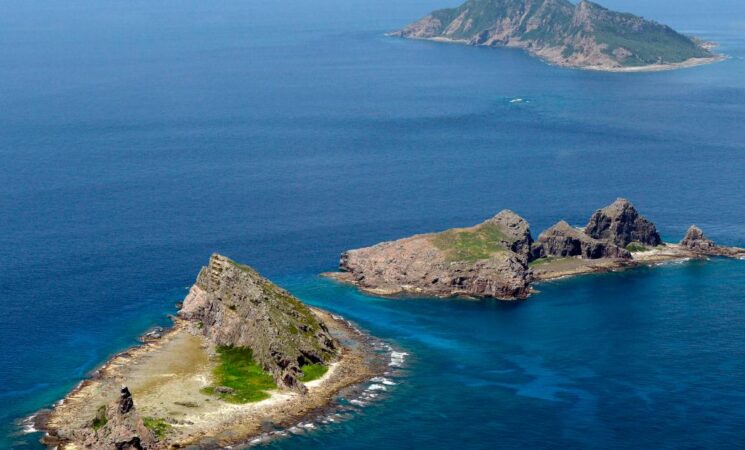1 March 2023, NIICE Commentary 8559
Prasangana Paul
Significance of the Senkaku Islands
The Senkaku Islands, also known as Diaoyu Islands in China, are a group of uninhabited islets located in the East China Sea. The islands have been a longstanding source of tension between China and Japan, both of whom claim sovereignty over the territory. For China, the Senkaku Islands are significant for several reasons. First, the islands are believed to be rich in oil and natural gas reserves, which would be strategically important for China’s energy security. Additionally, China’s claim to the islands is closely tied to its historical territorial claims in the region, which have been a source of national pride and identity for many Chinese citizens. The Senkaku Islands are important for Japan because they are strategically crucial, close to major shipping lanes and fishing grounds. Japan has also invested significant resources in the islands, including building lighthouses and a small research station and sees them as an integral part of its national territory. These uninhabited islands, located in the East China Sea, have been the subject of territorial disputes between the two countries for decades, and the issue has had significant political, economic, and security implications for both countries.
Political Impact
The Senkaku/ Diaoyu Islands’ contention has significantly impacted the political relations between Japan and China. It has caused a considerable strain in the relationship between the two major powers, with both sides refusing to back down. The Japanese government asserts that the islands are part of its territory, while China claims that the islands have been its territory since ancient times. The disagreement has been a source of nationalist sentiment in both countries, and politicians in both countries have played on this to gain support from their respective populations. This has also led to the deterioration of diplomatic ties between the two countries. There have been frequent protests by Chinese citizens against Japan, and the Japanese embassy in China has been attacked several times. The dispute has also had political ramifications for the United States, which is an ally of Japan and has military bases in the region. The US has stated that it will defend Japan in case of any conflict, which has raised concerns in Japan.
Economic Impact
The fallout has also had crucial economic implications for both countries. The area surrounding the Senkaku/Diaoyu Islands is believed to be rich in oil and gas reserves, and fishing grounds. Therefore, controlling the islands is of economic gravity. This has also led to a decline in economic relations between Japan and China. In 2012, when the Japanese government purchased three of the Senkaku Islands from a private owner, anti-Japanese protests broke out in China, and there were calls to boycott Japanese goods, causing a decline in Japanese exports to China. In addition, Japanese companies have faced obstacles in doing business in China, including difficulties in obtaining necessary permits and licenses. Japan is an important trading partner and source of foreign investment for China. The tensions surrounding the dispute have led to a decline in Japanese investment in China and a slowdown in bilateral trade.
Security Implications
The altercation has also had a security imputation on the region with growing tensions between Japan and China increasing in recent years, with both sides doubling their military presence in the region. Japan and China have both strengthened their military presence in the area, with Japan bolstering its naval and air force capabilities and China sending naval vessels and aircraft to the region.
The Chinese government has also expanded its maritime activities around the Senkaku/Diaoyu Islands, which has led to concerns among Japanese officials. Japan has responded by growing its military presence in the area, and the dispute has led to a rise in nationalist sentiment in both countries. The risk of accidental clashes or misunderstandings between the two countries has also increased, which could escalate into a larger conflict.
It also had an impact on the United States, which has a security treaty with Japan. The US has stated that the islands fall under its security umbrella, and any attack on Japan in the region would be considered an attack on the United States. The US has also urged Japan and China to resolve their clash peacefully and has conducted joint military exercises with Japan in the province to deter potential aggression.
Conclusion
The resolution of the conflict remains elusive, with both sides continuing to assert their sovereignty over the islands. Efforts to resolve the dispute have been ongoing, but progress has been slow. In recent years, there have been some positive developments, including a resumption of high-level talks between the two countries and the signing of a bilateral fisheries agreement. However, the dispute remains unresolved, and tensions between China and Japan continue to simmer.
Prasangana Paul is a Research Intern at NIICE.

